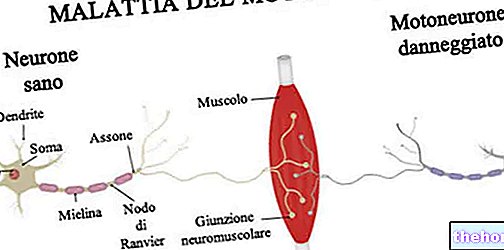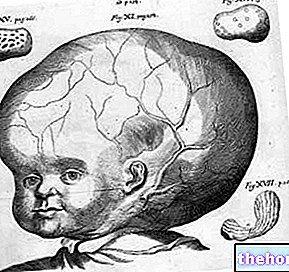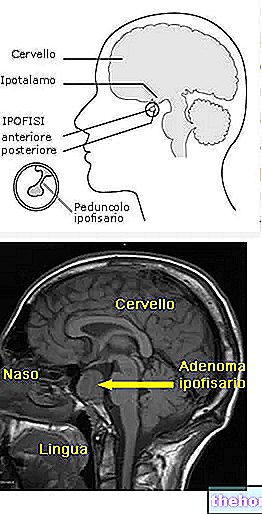Edited by Dr. Sarah Beggiato
Behavioral Disorders in a Patient with Alzheimer's Disease
The behavioral disturbances, mood disorders and psychotic symptoms, which often accompany the individual with Alzheimer's disease, are not only caused by brain degeneration but also by the way in which the patient adapts to his progressive disabilities.

For symptoms such as hallucinations and delirium, antipsychotic drugs are helpful. In particular, normally, these can be distinguished in antipsychotics of older generation, whose use must be limited to particularly emergency conditions and in any case for a limited period of time, and those of new generation or atypical. The latter are used to treat the behavioral disorders of dementias and have fewer side effects, such as sedation or motor slowing, compared to older generation drugs.
Among the most commonly used new generation drugs are Abilify, Clorazil, Zyprexa, Seroquel and Risperdal.
It is important to emphasize that patients with Alzheimer's disease have a greater risk of developing adverse effects, including metabolic syndrome, a set of metabolic risk factors that increase the possibility of developing heart disease, stroke and diabetes.
The onset of neuroleptic malignant syndrome, characterized by hyperthermia, muscle stiffness and altered state of consciousness has also been reported.
One of the most recent antipsychotic drugs, approved by the European Commission in 2010, Sycrest (in Europe) or Saphris (in the US), has shown promise in treating the neuropsychiatric symptoms that can arise in Alzheimer's patients. The promising results obtained with this drug are likely due to the fact that it causes minimal adverse cardiovascular and anticholinergic effects, as well as minimal weight gain (weight gain).
In patients with Alzheimer's disease, depression is also very common, as the affected individual is faced with various emotional reactions including fear, terror and dejection, triggered by the cognitive decline to which the disease progressively leads with loss of one's independence. . The signs and symptoms of depression in Alzheimer's patients are very difficult to recognize, because some characteristics are also typical of Alzheimer's disease, such as anorexia, insomnia, weight loss and anhedonia.
If these symptoms characterized by a mood disorder are present and compromise the quality of life, first of all a non-pharmacological approach should be implemented, subsequently supported by antidepressant drugs. Generally these drugs are indicated in the treatment of depression and can often be useful to distinguish the "classic" depression that responds to treatment, from that which is a prelude to the subsequent evolution into dementia, whose response to the drug is rather doubtful.
Among the antidepressant drugs used are:
- Selective serotonin re-uptake inhibitors (SSRIs): are generally considered the first choice, due to the low profile of adverse effects compared to other classes of antidepressants. SSRIs include Celexa, Lexapro, Zoloft, Prozac, Paroxetina.
The side effects of SSRIs are typically gastrointestinal in nature and can be managed by starting with a low dosage, which can then be gradually increased or decreased. - Another antidepressant drug with a tetracyclic structure, Remeron, is a presynaptic α2-antagonist, which increases noradrenergic and serotonergic transmission in the central nervous system. Remeron was found to be useful in Alzheimer's disease patients who had depression associated with insomnia, poor appetite and weight loss. However, it should be considered that this drug could prove to be a wrong choice in the case of overweight patients or patients at risk of metabolic syndrome who have diabetes mellitus.
- Serotonin and norepinephrine re-uptake inhibitors (SNRIs). Among these we find Effexor, Pristiq, Cymbalta. In particular, these drugs can be useful in patients suffering from Alzheimer's disease and already being treated with pain medications, especially for arthritis.
However, serotonin and noradrenaline re-uptake inhibitors should be avoided in subjects with hypertension; they can also aggravate insomnia disorders.
If the person with Alzheimer's disease shows symptoms of mania or mood swings, mood stabilizing drugs are needed. However, many precautions must be taken when using this class of drugs, due to the potential side effects. The following are mentioned in this category of drugs: Depakote which affects patients at risk of weight gain, hyperglycemia and hyperlipidemia. However, this drug is also associated with a worsening of cognitive functions.
Another mood stabilizing drug is Tegretol which has been shown to be able to reduce aggression. However, its use requires monitoring of vital and blood functions. It is also a difficult drug to dose because it alters the metabolism of many other drugs, as well as the metabolism of the drug itself.
In the event that an Alzheimer's disease patient experiences sleep disturbances, behavioral intervention is preferable to drug therapy. In fact, those who care for a patient suffering from Alzheimer's disease must educate the patient by encouraging useful behaviors to establish a good sleep-wake rhythm. Some medications can be helpful in improving sleep. Among these, for example, melatonin, present in numerous drugs over the counter (OTC, Over The Counter), is useful. Another drug used is Triptych, an antidepressant that is highly sedative and can be used safely in low doses to improve sleep quality.
Benzodiazepines, on the other hand, are not recommended in individuals with Alzheimer's disease, due to adverse effects, including worsening memory functions, progressive loss of muscle coordination (ataxia), disinhibition and sleepiness.
Alternative and Complementary Therapies
Since Alzheimer's disease is a progressive and multifactorial neurodegenerative disease, alternative and complementary therapeutic approaches are also sought. These new therapies, in general, are not subjected to the typical scientific investigations, which require FDA approval; however many of these therapies are recommended by doctors, but also by other specialists, especially with regard to cases of the elderly who, together with Alzheimer's disease, also manifest classic cardiovascular diseases and various forms of arthritis.
For example, some epidemiological studies have shown that aspirin and other non-steroidal anti-inflammatory drugs may be able to "protect" from Alzheimer's disease and other forms of dementia. Studies conducted on animals, in fact, have shown that by using non-steroidal anti-inflammatory drugs a suppression of β-amyloid was observed, which as previously introduced is present in the form of plaques in the brain affected by Alzheimer's disease. However, randomized trials conducted in groups of individuals using non-steroidal anti-inflammatory drugs have not yielded satisfactory results. Furthermore, it should be remembered that both aspirin and other non-steroidal anti-inflammatory drugs involve cardiovascular risk, gastrointestinal bleeding and kidney problems. Therefore, these drugs should not be indicated exclusively for the treatment of Alzheimer's disease, but should be used for concomitant use, for example as a low-dose antithrombotic, only on medical indication.
It has also been suggested by recent studies that, in Alzheimer's disease, oxidative stress plays a key role, although it has not yet been clarified whether this is a primary pathogenic event or whether it is a secondary event to the activation of pathogenic mechanisms. . In patients with mild cognitive impairment, increased levels of oxidative stress have been found. This indicates that it is probably a phenomenon involved in an early and causal way in the neurodegenerative process. Following a higher intake or elevated plasma levels of antioxidants, some observational studies have found a reduced risk of dementia. Therefore, the use of substances with antioxidant activity could be a rational approach for the prevention and treatment of Alzheimer's disease.
Among these substances, vitamins A, C and E, the well-known Coenzyme Q10, idebenone, acetylcysteine, selegiline, ginkgo biloba and selenium deserve attention. However, the data currently available on their efficacy are negative or inconclusive; an explanation for these results could lie, at least in part, in methodological problems, such as an unsuitable duration of treatment, the use of non-optimal dosages, an incorrect therapeutic window and others. The experimental results, in fact, indicate that oxidative stress is a very early event in the onset of the disease. This suggests that perhaps antioxidants act mainly at the level of primary prevention.
Vitamin E deserves special attention. It exists in the form of eight isoforms and currently studies have used only one of these isoforms, α-tocopherol. Growing evidence suggests that the other isoforms of vitamin E appear to have a protective role. against cognitive decline and Alzheimer's disease.Further studies will be needed to clarify the role of antioxidants, also in light of the fact that these products, being sold as over-the-counter products, have an increasingly widespread use and are also taken without medical supervision. Importantly, some recent meta-analysis studies have shown increased mortality associated with the use of antioxidants, such as vitamin E, beta carotene and vitamin A. At high doses, vitamin E appears to aggravate vitamin K deficiency in disorders. of coagulation thus increasing the mortality of elderly people.
Other articles on "Alzheimer's - Treatments for Behavior Disorders and Alternative Therapies"
- Alzheimer's Disease - Cures and Treatments
- Alzheimer's Disease - Definition, Symptoms, Causes
- Alzheimer's Disease - Diagnosis
- Alzheimer - Morphology, Pathogenesis and Neurochemical Aspects
- New Alzheimer's Drugs and Research Strategies
- New Alzheimer's Disease Drugs and Research - Part 2
- Vaccines and Immunotherapy for Alzheimer's Disease




























